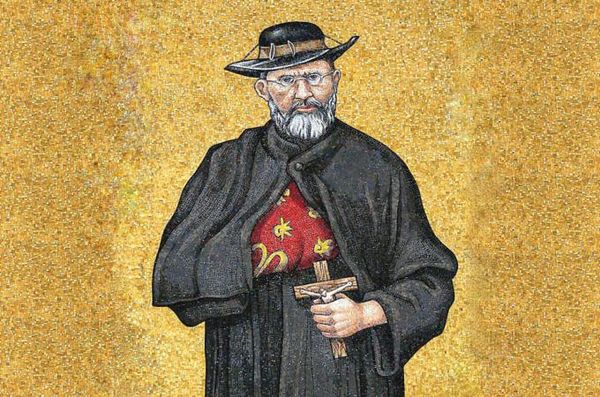The man who would become St. Damien of Molokai, was born in rural Belgium, on January 3, 1840. His name was Jozef De Veuster, and he was the youngest of seven children. Growing up on the farm, Jozef was prepared to take over for his family, but he did not want the responsibility. Instead, he wanted to follow his older brother and two sisters who took religious vows.
Jozef attended school until the age of 13 when his help was needed on the family farm full-time. He aided his family until he was old enough to enter the Congregation of the Sacred Hearts of Jesus and Mary. He took the name Damien, after a sixth century martyr.
In 1864, Damien's brother who was also in the same order of religious, was ordered to Hawaii. But his brother became ill, so Br. Damien offered to go in his place.
Missionary to Lepers
Father Damian cared for the lepers and established leaders within the community to improve the state of living. Father Damian aided the colony by teaching, painting houses, organizing farms, and organizing the construction of chapels, roads, hospitals, and churches. He also dressed residents, dug graves, built coffins, ate food by hand with lepers, shared pipes with them, and lived with the lepers as equals. Father Damien also served as a priest during this time and spread the Catholic faith to the lepers; it is said that Father Damien told the lepers that despite what the outside world thought of them, they were always precious in the eyes of God.
Some historians believed that Father Damien was a catalyst for a turning point for the community. Under his leadership, basic laws were enforced, shacks were upgraded and improved as painted houses, working farms were organized, and schools were established. At his request and of the lepers, Father Damian remained on Molokaʻi. Many such accounts, however, overlook the roles of superintendents who were Hawaiian or part-Hawaiian. Pennie Moblo states that until the late 20th century, most historical reports of Damien's ministry revealed biases of Europeans and Americans, and nearly completely discounted the roles of the native residents on Molokaʻi. However, it could be asserted that Pennie Moblo does not account for the separation of civil authorities and religious authorities. As was customary in the time period, Fr. Damian's work was reported to Europeans and Americans in order to raise funds for the mission. How the colony was governed would be outside the scope of the written accounts and not important to raise funds for the charitable works of Father Damian.
Father Damian worked in Hawaii for 16 years, providing comfort to the lepers of Kalaupapa. In addition to giving the people faith, he built homes for them and he treated them with his medical expertise. He prayed at the cemetery of the deceased and he also comforted the dying at their bedsides.
In December 1884, while he was preparing to bathe, Damian inadvertently put his foot into scalding water, causing his skin to blister. He felt nothing and realized that he had contracted leprosy after working in the colony for 11 years. This was a common way for people to discover that they had been infected with leprosy. Despite his illness, Damian worked even harder. Ulimately he succumbed to the disease and died.
Father Damian worked in Hawaii for 16 years, providing comfort to the lepers of Kalaupapa. In addition to giving the people faith, he built homes for them and he treated them with his medical expertise. He prayed at the cemetery of the deceased and he also comforted the dying at their bedsides.
